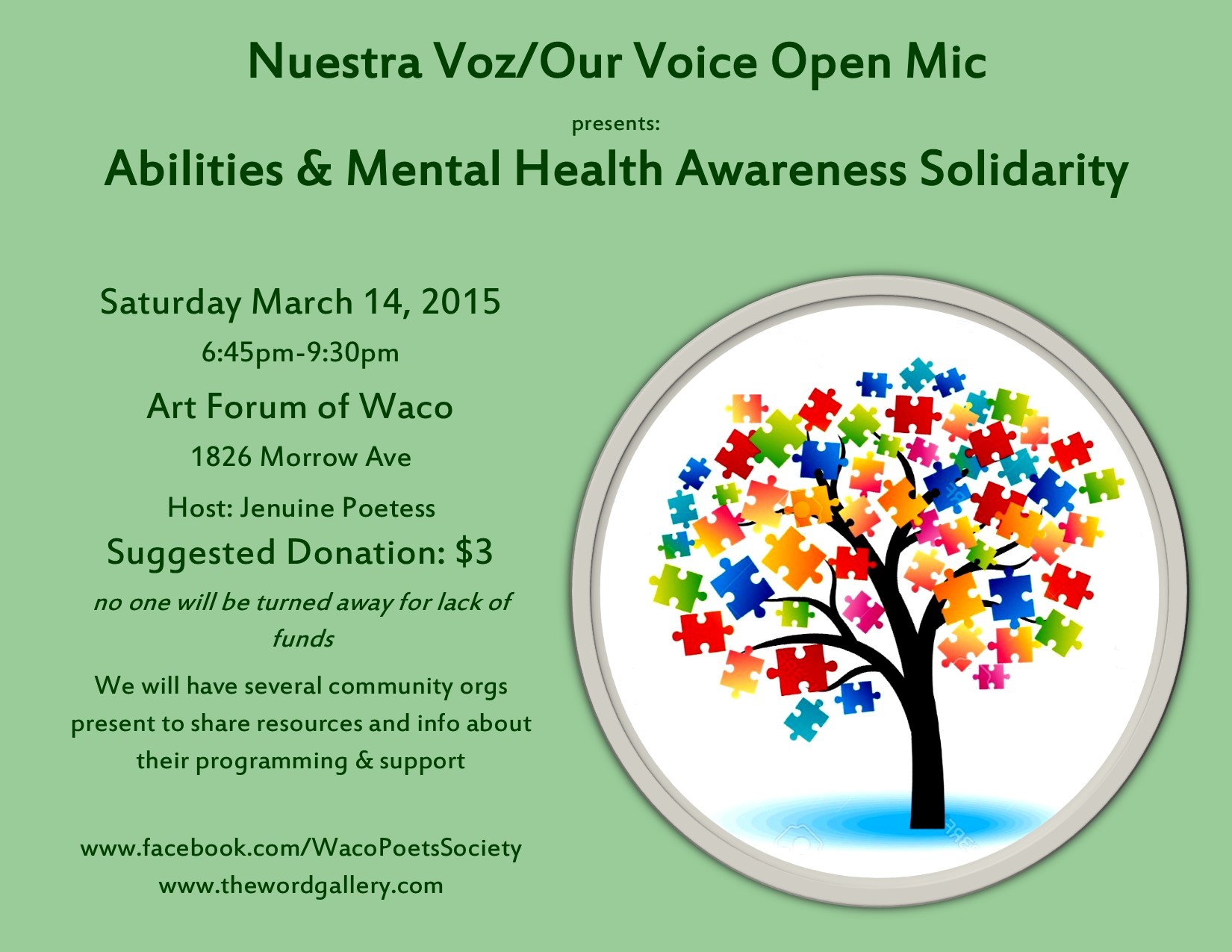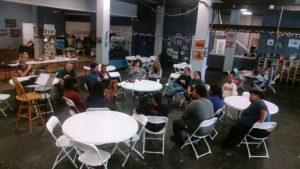By Ashley Bean Thornton
So, I ran for city council and I lost.
It’s been two weeks. I spent the first week taking naps, binge-watching “House of Cards” and eating ice cream and chips for dinner every night. (Really Blue Bell? You had to pick this year to have your big melt down?) Now, with two weeks of perspective under my belt, my mood has improved considerably. I’m not quite skipping yet, but there’s definitely a new spring in my step.
I know it sounds like sour grapes to bring it up at this point, but the truth is I wasn’t just chili red hot to run for city council in the first place.
When Toni Herbert, our retiring city council person, suggested I should run, I resisted strongly. My initial response was, “Not one single cell of my heart leaps up with joy at the thought of doing that.”
So why did I agree to do it? Well, I love Waco of course. And, I have been working really hard for several years on various committees and projects and pieces and parts that seem to finally be coming to fruition under the umbrella of the Prosper Waco initiative. I thought being on City Council would put me in a good position to keep nudging that along. I didn’t know anyone else who was thinking of running, so it just started to feel like the responsible thing to do. On top of that, I’m more susceptible to flattery than you might think, and it’s awfully flattering to have your city council person ask you to run to take her place.
So why did I resist? I’m 53 years old. I probably don’t know as much about myself as I should at this point, but I do know a few things. I know that I am more of an “acquired taste” than a “first impression.” I know that my most basic approach to life is, “Here I am. Take it or leave it.” I know that I am a friendly introvert — I like people, but people wear me out. None of this self-knowledge made me think, “Hey! You know what would be fun? Running for City Council!”
Also, I knew that I was already way, way too busy and I didn’t want to be any busier. I knew that I would HATE asking people to vote for me. I know this sounds peevish, but I knew that I would HATE having my picture taken. I knew that running for office was going to make me feel over-exposed. I knew that, win or lose, the whole process would be embarrassing and that the MOST embarrassing thing would be to lose.
There I said it. I know it’s a little bit immature, but one of the main reasons I didn’t want to run is because I know that when you run there’s a chance you will lose, and I thought to run and lose would be really embarrassing. And it is a little bit embarrassing. But…as it turns out…being embarrassed doesn’t actually kill you.
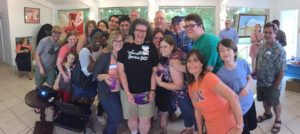 In fact, I liked it better than I thought I would. I was absolutely overwhelmed by all the kind, encouraging, enthusiastic support I received throughout the campaign. Some of this came from good friends, but even more came from people I hardly knew, some from people I didn’t know at all and would never have known if I hadn’t stepped out and run. I did a lot of door knocking, which was terrifying at first, but I learned that most people are pretty nice and some people genuinely appreciate you stopping by. (I also learned that there are a WHOLE lot of Chihuahuas in District 4. They are not always as nice as the people!) My campaign team was a true joy. What a wonderful, talented, fun, funny, creative group of folks! I couldn’t have asked for better people to help me, and I cannot imagine how I would have ever gotten to know them as well as I have if we hadn’t taken on this project together. That alone was worth the price of admission.
In fact, I liked it better than I thought I would. I was absolutely overwhelmed by all the kind, encouraging, enthusiastic support I received throughout the campaign. Some of this came from good friends, but even more came from people I hardly knew, some from people I didn’t know at all and would never have known if I hadn’t stepped out and run. I did a lot of door knocking, which was terrifying at first, but I learned that most people are pretty nice and some people genuinely appreciate you stopping by. (I also learned that there are a WHOLE lot of Chihuahuas in District 4. They are not always as nice as the people!) My campaign team was a true joy. What a wonderful, talented, fun, funny, creative group of folks! I couldn’t have asked for better people to help me, and I cannot imagine how I would have ever gotten to know them as well as I have if we hadn’t taken on this project together. That alone was worth the price of admission.
I did hate asking people to vote for me, but I got better at it and it was humbling and empowering at the same time. I did hate getting my picture taken, but I’ve gotten over myself in regard to that too, so good for me! I was tired almost the whole time. I had to do lots of things that were uncomfortable, and it has definitely given me a whole new appreciation for the people who serve in city wide offices. I will be much slower to criticize from now on. Even though I lost, I feel, oddly, like I gained self-confidence instead of losing it. (Maybe because now I know for sure that losing and being embarrassed doesn’t actually kill you. )
In short, I grew. Even at 53, or maybe especially at 53, growing is not 100% fun, but looking back it was definitely worth it. I may have more profound thoughts on the nature of city politics from the distance of a few more weeks, but for now this is enough for me to turn off Netflix and put down the bag of chips and start thinking about the next adventure.
For the record, I fully support my former “nemesis,” Dillon Meek. He seems like a great guy, and all of us will benefit from him being a terrific city council rep. I certainly intend to help him do just that! By “help” I mean cheering him on when I think he is doing a good job, communicating with him as honestly and positively as I can if I have concerns, and doing my part to serve in whatever capacity is most helpful. I hope my fellow D4 dwellers out there will do the same. I’m very impressed that he has already started to reach out to all kinds of different people in the district, some who supported him and some who did not. I think that is smart, and courageous, and overall just a good thing to do.
In fact I feel like I should be thanking Mr. Meek! I got a lot of benefit from participating in this campaign, and now he’s the one who’s going to end up doing all the work! (Wink!)
 This Act Locally Waco blog post is by Ashley Bean Thornton, the Manager of the www.www.actlocallywaco.org website and the editor of the Friday Update newsletter: The WHOLE Enchilada. The Act Locally Waco blog publishes posts with a connection to these aspirations for Waco. If you are interested in writing for the Act Locally Waco Blog, please email [email protected] for more information.
This Act Locally Waco blog post is by Ashley Bean Thornton, the Manager of the www.www.actlocallywaco.org website and the editor of the Friday Update newsletter: The WHOLE Enchilada. The Act Locally Waco blog publishes posts with a connection to these aspirations for Waco. If you are interested in writing for the Act Locally Waco Blog, please email [email protected] for more information.
(The Heart of Texas P-20 Council includes representatives from K-12 education, higher education and employers. They meet regularly to help coordinate efforts to launch our young people into productive lives as workers and citizens. This post is one in a monthly series of posts intended to share information about the work of this important group in our community. For more posts in this series, click here: P-20 education. — ABT)
By Christine Holecek
AVATAR is not just an icon or figure representing a person in a video game and it is not a blue hybrid alien from a movie. AVATAR in the Heart of Texas stands for “Academic Vertical Alignment Training and Renewal.” It is a joint project, now in its third year, organized by the Education Service Center Region 12 (ESC Region 12) and the Heart of Texas P20 Council to bring together local school districts and local colleges to collaborate on high school transition to college.
![]() Year one looked specifically at High School English Courses (AP and Dual Credit) and expectations for college English courses. Critical conversations were held on the alignment that needs to happen for students to be more successful in college. Great strides were made. For example, high school and college teachers worked together to develop a tool for all teachers to use to grade essays consistently and holistically.
Year one looked specifically at High School English Courses (AP and Dual Credit) and expectations for college English courses. Critical conversations were held on the alignment that needs to happen for students to be more successful in college. Great strides were made. For example, high school and college teachers worked together to develop a tool for all teachers to use to grade essays consistently and holistically.
Year two’s project added math to the equation. Representatives from both ELAR (English, Language Arts and Reading) and Math disciplines began discussing the College Preparatory course requirements introduced by House Bill 5 in 2012. These course offerings are now required by the legislature to help students be better prepared to enter college without remediation. High School and College ELAR and Math teachers worked with McLennan Community College (MCC) to develop a course that was made available the fall of 2014. School districts interested in using the college prep course can complete a Memorandum of Understanding (MOU) with MCC.
A College Prep Course symposium was held in September 2014 to introduce school districts to local college offerings. Representatives from McLennan Community College, Texas State Technical College, Hill College, Temple College, and Central Texas College provided an overview of their new College Prep Courses that provide course content in English/Language Arts and Mathematics. Each college representative answered specific questions related to course design and MOUs. This symposium offered a format that allowed participants to attend one or all of the college overviews.
Year three’s focus brought counselors into the fold. Their discussions about college transition will result in a “Frequently Asked Questions” document about what students need to know as they transition to college. The counselors are continuing their work together with critical conversations around college and career readiness, dual credit courses and college prep courses. They have been meeting once a month (February – May) to discuss trends and issues in college and career readiness. Counselors will also review and critique college and career readiness products: such as the Texas Online College and Career Readiness Resource Center.
Planning for year four has begun. Career and Technical Education (CTE) teachers will be asked to contribute expertise into high school endorsement pathways. Six year plans will be created in the areas of Business and Industry, Public Services, and Science, Technology, Engineering and Math (STEM).
For more information about the AVATAR program, please contact Christine Holecek [email protected].
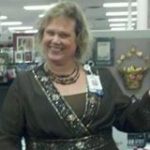 This Act Locally Waco blog post was written by Christine Holecek. Christine is an Education Specialist at Education Service Center Region 12 in Waco. She has worked in the area of Adult Education and Career & Technical Education for the past 25 years. She earned an AAS degree from MCC, a BAAS and Master’s Degree from the University of North Texas and is currently enrolled in the Doctoral Program in Educational Leadership and Policy Studies at Tarleton State University.
This Act Locally Waco blog post was written by Christine Holecek. Christine is an Education Specialist at Education Service Center Region 12 in Waco. She has worked in the area of Adult Education and Career & Technical Education for the past 25 years. She earned an AAS degree from MCC, a BAAS and Master’s Degree from the University of North Texas and is currently enrolled in the Doctoral Program in Educational Leadership and Policy Studies at Tarleton State University.
The Act Locally Waco blog publishes posts with a connection to these aspirations for Waco. If you are interested in writing for the Act Locally Waco Blog, please email [email protected] for more information.
By Katie Grovatt
Waco: I came here as a Baylor student not knowing what to expect from the city where my school is located. My quest: to go out and discover what my new home city has to offer. What I found: the Waco Downtown Farmer’s Market, a place where I can be part of the heart of a community.
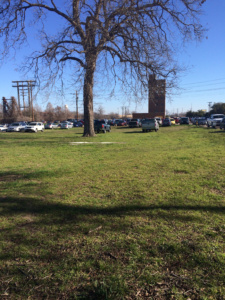 Located next to the river, close to the downtown intersection of Webster and University Parks, the farmer’s market is where local venders, people, dogs, children and live music unite to create an atmosphere of joy, especially on a beautiful Saturday morning. My first trip was on Valentine’s Day. I was excited to strap up my loving canine companion, Rosie, and see what the market had in store for us! As we rolled into a parking spot at half past 9 (the market opens at 9 a.m.), the sounds of music, laughs, and food sizzling on grills met my ears.
Located next to the river, close to the downtown intersection of Webster and University Parks, the farmer’s market is where local venders, people, dogs, children and live music unite to create an atmosphere of joy, especially on a beautiful Saturday morning. My first trip was on Valentine’s Day. I was excited to strap up my loving canine companion, Rosie, and see what the market had in store for us! As we rolled into a parking spot at half past 9 (the market opens at 9 a.m.), the sounds of music, laughs, and food sizzling on grills met my ears.
Families were touring the shady path lined with booths. Children were shoving freshly made sweets into their mouths, laughing, and hula hooping on the bright lawns. As I started my own tour through the many different vendor tents, Rosie pulling my arm off in the process, my eyes landed on a man selling freshly grown pecans.
His name was John Cogll and he was selling his grandchildren’s pecans. The business, known as “Fresh Native Pecans” is located in McGregor, Texas. They utilize wild pecans growing around Central Texas and season them with tasty spices such as “Apple Pie” or “Mesquite Smoked”. I was offered a sample as I talked to Cogll about where I could purchase some of these tasty pecans. “HEB isn’t too interested in ‘healthy’ or organic foods,” Cogll answered when I asked if I could buy these at our local grocery store. The pecans do however get distributed to grocery stores all around the area, as far as Albuquerque, New Mexico. These delicious nuts can also be purchased at ThePecanShop.com. But I would recommend traveling on Saturday yourself to the farmer’s market and purchasing a bag personally from John Cogll.
After tasting local and freshly harvested pecans, Rosie dragged me to a small booth handing out fresh samples of Indian Food. Scolding my over eager dog and untangling myself from the leash that had wrapped around my body, I smiled at the lady and asked about her history selling Indian Food. Her name was Christina Allen. She’s originally from a town outside of Austin, but currently works for the commercial kitchen known as Lamba’s. Started four years ago by an Indian couple, Garima and Gurpuet Lambo, Lambda’s is located near Austin. They sell their food at many different farmer’s markets in the Central Texas area. I sampled the delicious Spinach Pakora. Completely gluten free, Pakora is a crunchy snack bursting with a creamy flavor from the special dipping sauce known as the Royal Dip — delicious! And, I am not even a huge fan of Indian food.
Allen herself was never an Indian food fanatic either; she just picked up the job to make some extra money. After sampling the food though — authentic, healthy, and so tasty — she loves it. She still wouldn’t want to go to just any Indian restaurant, but Lamba’s food is one of her favorites. Her go-to meal is the Chicken Tikka Masala, a dish made up of freshly roasted chicken seasoned with spicy and creamy sauces. Whether or not you’re an Indian food expert, Lamba’s has options for everyone. Even the pickiest of eaters won’t be disappointed with this yummy cuisine.
 Next I followed the aroma of fresh-brewed coffee to a long and winding line of people waiting for fresh cookies, soft and warm muffins, and coconut cream lattes. I made my purchase and received my coffee in a simple white cup with the logo Double B Farms. The family running the tent was very busy with their customers so I sweetened my coffee and headed over to the live music.
Next I followed the aroma of fresh-brewed coffee to a long and winding line of people waiting for fresh cookies, soft and warm muffins, and coconut cream lattes. I made my purchase and received my coffee in a simple white cup with the logo Double B Farms. The family running the tent was very busy with their customers so I sweetened my coffee and headed over to the live music.
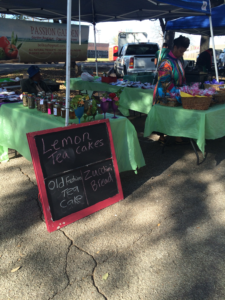 Sipping my coffee and listening to a talented girl playing acoustic versions of everything from Taylor Swift to Katy Perry, I surveyed what I had just experienced. I had discovered a welcoming place, full of joy, and full of stories. I smiled as each person walked by, carrying their “souvenirs” from the farmer’s market. Each person’s purchases tells a little different story about who they are and what they like. Each one with an individual character, and each one supporting the local businesses of Waco as a whole.
Sipping my coffee and listening to a talented girl playing acoustic versions of everything from Taylor Swift to Katy Perry, I surveyed what I had just experienced. I had discovered a welcoming place, full of joy, and full of stories. I smiled as each person walked by, carrying their “souvenirs” from the farmer’s market. Each person’s purchases tells a little different story about who they are and what they like. Each one with an individual character, and each one supporting the local businesses of Waco as a whole.
It made me think. Though each one of us has our own interests, our own busy lives within this town, each of us are here for a reason and are a part of something bigger. We are people, we are joy, and we are Waco. Even though we each play a different part, we support each other. As we gather together on Saturday mornings to shop and eat and listen to music and enjoy each other’s dogs and children, we are the heart of the city, and it is a big, beautiful heart!
 This Act Locally Waco blog post was written by Katie Grovatt. Katie, a New Jersey native, is studying journalism at Baylor University. She has fallen in love with Waco since she has gotten here, and loves to spend her time exploring, meeting the many different people that make this city thrive, and writing about her adventures. Currently she is working at the Wacoan Magazine as an editorial intern, and running track and cross country for the Baylor Track & Field Team. Her dog, Rosie, is her faithful side kick and equally enjoys exploring and meeting the people of Waco.
This Act Locally Waco blog post was written by Katie Grovatt. Katie, a New Jersey native, is studying journalism at Baylor University. She has fallen in love with Waco since she has gotten here, and loves to spend her time exploring, meeting the many different people that make this city thrive, and writing about her adventures. Currently she is working at the Wacoan Magazine as an editorial intern, and running track and cross country for the Baylor Track & Field Team. Her dog, Rosie, is her faithful side kick and equally enjoys exploring and meeting the people of Waco.
The Act Locally Waco blog publishes posts with a connection to these aspirations for Waco. If you are interested in writing for the Act Locally Waco Blog, please email [email protected] for more information.
by Jenuine Poetess
“It is easy to feel lost and betrayed in a world of increasing alienation, where greed, injustice, and dull materialism obscure the underlying dream of life. There is a path the soul would have us take and a unique way of seeing the world it would have us awaken to. There is a music and rhythm in the body and a song in the soul; both an inner vitality and an instinctive connection to the divine that is the inborn source of great imagination and creativity,” mythologist Michael Meade writes. Rooted in this very conviction, Waco Poets Society holds space for every voice to share its story, song, poem, rhythm, and truths via regular open mic events throughout the city.
There is something uniquely transformative, when a collection of people—across so many cultures, beliefs, ages, disabilities, life-practices, genders, abilities, talents, genres, styles, and languages—gather together to share with to one another. Assumptions, prejudices, walls begin to crumble as we listen to each other. We begin hearing pieces of our own stories, nestled within the harmonies and poetics of another. We recognize parts of ourselves in the mirrors our creative expressions are for one another.
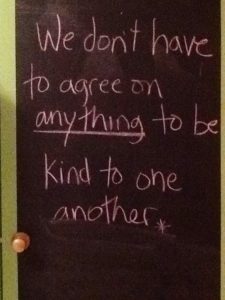 The extraordinary thing is that regardless of all the things that might divide us, within the space of an open mic, we respect and honor the expression. We don’t all have to agree on the content, but we hold space for one another acknowledging that every person has authority over their own truth. While Waco Poets Society is committed to holding an uncensored space, their one caveat is that hate speech of any kind—toward self or others—is not welcome because it is not a productive part of cultivating authentic community.
The extraordinary thing is that regardless of all the things that might divide us, within the space of an open mic, we respect and honor the expression. We don’t all have to agree on the content, but we hold space for one another acknowledging that every person has authority over their own truth. While Waco Poets Society is committed to holding an uncensored space, their one caveat is that hate speech of any kind—toward self or others—is not welcome because it is not a productive part of cultivating authentic community.
Beyond Waco Poets Society, other individuals and grass-roots initiatives are beginning to bloom throughout this city. Organized by Saddiq Granger, a new gathering called Minority Report is an open-to-all talking circle safe space where everyone is invited to share their stories of minority experiences or being marginalized in any setting due to a specific difference…and it’s a potluck!
It is vital to the thriving of our community that such spaces continue and multiply. There is no such thing as too many spaces for creative and authentic expressions of personal truths! These circles and conversations and open mic gatherings and dialogues are what allow us to give one another agency. To affirm that Yes! our stories, our experiences matter. To step for a moment into another’s shoes and feel the challenges of the path they walk daily. To deepen our mindfulness and broaden our compassion. This is how our city will flourish. This is how we will continue growing into the community where everyone is welcome, celebrated, and honored for exactly who they are. Of course we don’t all have to believe or live or practice or speak or dress or express in the same ways. How bland would life be if that were the case!
Open mic and creative talking circles give us the opportunity to practice being curious about the truths of others. We hold space for people to be nourished and inspired by the collective creativity exchanged. Artists are allowed to practice new styles and voices and expressions while sorting out their own true identity. We have grace for the mistakes, stutters, and stumbles because we celebrate the fact that all of us, not just our art works, are rough drafts. We challenge one another as those more experienced nudge those of us just starting out into enriched becoming. Across generations and cultures and languages and beliefs and genders and identities relationships are formed. And those relationships, transform individuals, transform neighborhoods, transform cities, transform nations.
Get Involved:
- New Open Mic collaboration between Waco Poets Society, Central Texas Artist Collective, & Tea2Go Waco every 3rd Thursday beginning May 21st @ 7pm with a kick-off event featuring singer/song-writer Katie Stewart. CTAC will be curating a monthly visual arts exhibit which will open each month at open mic. FREE ~ please purchase drinks to support this new local business!
- Nuestra Voz open mic @ Art Forum of Waco May 23, 2015 at 7pm. Theme for this event is Grief & Loss. This will be a safe space for remembering, honoring, reflecting on expressions of who and what has been lost. This is a potluck event; bring a main, side, dessert dish or drink to share. FREE ~ $3 donations appreciated & shared with Art Forum.
- Keep up with the next Minority Report circle & potluck by visiting & liking their social media page at: facebook.com/MinorityReportWaco
by Liz Ligawa
Her name is Olivia. And six years ago, she was expected to be born this month.
I was finally enjoying a stress-free day. After just wrapping up classes for this semester, I allowed myself to enjoy some respite from academic rigor by scrolling, unthinkingly, through my Facebook newsfeed. As I scrolled, I laughed…smiled…blocked (you just have to do that sometimes), and then suddenly stopped. NPR was seeking feedback on their Facebook page about what people “wished others knew about miscarriage”. I stared blankly at the screen of my iPhone, and felt uncomfortably, unnervingly bare. “How did this find me?” I wondered as tears rolled at pace with sighs. I tried to continue scrolling down as if I never saw the post. I looked for things that were funny. I looked for things that were cute. I looked for anything that would help me escape from dealing with the dynamite that had so casually been laid in my lap. This escape I could not find.
Our society has carried a message pretty well. The message we have historically been exposed to is one that makes womanhood synonymous to motherhood. Even a woman’s age is labeled with respect to having children- “child-bearing age”. The moment we become engaged, we start receiving inquiries regarding if we will have children. As soon as we sashay down the aisle, we are asked when we will have children. As soon as the first child is out, we are asked when we will have another. It seems to never end. Now, I am not against women, or children, or women having children, I just wonder what message we are sending to ourselves and other women when motherhood is not a part of our story.
I never expected to no longer be expecting. I did not anticipate the certainty of loss. As the news that I was carrying ignited applause, the fact that I miscarried would be silently observed. Unfortunately, I received this silence as a directive since I also did not know how to respond.
I scrolled back to the NPR Facebook page. I did not have a plan for what I would do once I got to the page. I was not even sure if I wanted to contribute to the survey. I just knew I had to go back. I cautiously started to view the comments that were listing. I wondered what truths would register in my heart, but also feared the shame that could also be exposed. Comment after comment, they kept on coming. Line upon line, they took ownership of space. One after the other, they told a story, and expressed truth. Post, after post, after post: Grief. Shame. Uncertainty. Self-Blame. Disbelief. Scorn. Fear. Rejection. Loss. Loss. Loss. I recognized my story. I recognized myself. What I did not understand is why we discuss this loss in such muted terms. Why do we whisper these wounds? Is it wrong to suffer loss?
As a newlywed, I was told that I would have plenty of time to try for more. As an expectant mother, I just wanted my baby.
As I looked at the commentary, I started to wonder how much our society’s view of womanhood and motherhood had to do with our personal experiences of loss. Should grief be automatically flanked by guilt and shame? If motherhood and womanhood were not used interchangeably, could we appreciate each more? If I am a woman, is it okay not to be a mother? My personal experience of guilt and shame were founded on the belief that having a child was as simple as being a woman. It is just not true. Some of the women who have impacted my life the most are those without birth children, or who have experienced loss of a child. I consider myself a part of them, and I am deeply privileged to be one of theirs.
In considering how I could listen more closely to others so that I may hear their whispered wounds, I learned that I first must bear witness to my own. When I ran across the Facebook post, it had been a year since I had spoken Olivia’s name, and just as long in acknowledging that pain. In this way, I am thankful for the survey.
So, on this day that mothers are celebrated, I am mindful of the mothers who have suffered loss; I am respectful of the dear ones who long to mother; I am honored by the ones who mother alongside me; and I am grateful for the ones who mother me.
Olivia
I grieve the first one of my womb
With hidden words
And muted hues
Silently and underneath
The uninquiring pleasantries
Stifling questions held the applause
Of things to be, now just what was
And memory’s unforgiving stare
Credits me for what’s not there
I grieve in syncopated breaths
When stillness fills the room
I grieve in smiles and how-do-you-dos
When still is gone too soon
We spread the news too soon I guess
But even those who knew
Are scared to hear or tell of you
The first one of my womb
-Liz Ligawa
If this post spoke to you because of a personal experience of miscarriage, stillbirth, early infant loss, or infertility, you may be interested to learn about Cradled by Love, Hope and Healing an organization in Waco that offers individual support as well as weekly peer support groups.
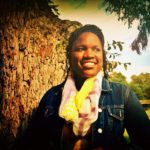 This post was written by Liz Ligawa. Liz is a graduate student of Baylor University where she has found the perfect expression of her community-centered heart in the MDiv/MSW degree program. With a concentration on Community Practice, she is also the adoring mother of one son, Elijah, who prefers to be regarded in public as Spider-Man. She may be reached at [email protected].
This post was written by Liz Ligawa. Liz is a graduate student of Baylor University where she has found the perfect expression of her community-centered heart in the MDiv/MSW degree program. With a concentration on Community Practice, she is also the adoring mother of one son, Elijah, who prefers to be regarded in public as Spider-Man. She may be reached at [email protected].
The Act Locally Waco blog publishes posts with a connection to these aspirations for Waco. If you are interested in writing for the Act Locally Waco Blog, please email [email protected] for more information.
By Matthew Polk
This is an exciting time to live in Waco. Downtown revitalization, Baylor football in McLane Stadium, Fixer Upper, food trucks…the list of great things about Waco is long and growing. There is a refreshing energy that comes from living in a place that is growing and seeing success. Everyone wants to be part of a winning team.
Most of us would agree that when a community grows and prospers, the benefits spill over to all of the community members in one way or another. A revitalized downtown means a more beautiful city, more places to shop and eat, more jobs. A winning sports program means more exciting entertainment options and visits from College GameDay. Local TV celebrities give us something to talk about with strangers on the airplane when we tell them we’re from Waco, TX. In other words, when Waco wins, we all win. This idea seems to make sense to most people.
But how often do we flip that idea on its head and look at it from another perspective? How often do we think about the fact that, when one Wacoan benefits, it’s good for the rest of us? It’s easy to see that when the community as a whole is flourishing there are benefits for us individually—sometimes it’s harder to see how one person’s success can lead to benefits for the rest of the community (unless that person happens to be named Art, Bryce, Chip, or Joanna).
Prosper Waco is about the idea that for the community of Waco to flourish, Waco’s citizens and families have to flourish. It’s about the idea that the more successful we are individually, the stronger we will be as a community. We have a special opportunity to seize the momentum Waco has and harness it in a way that benefits all members of our community. Prosper Waco is about making sure that all Wacoans have a chance to capitalize on our recent success and, by doing so, to contribute to the growing momentum.
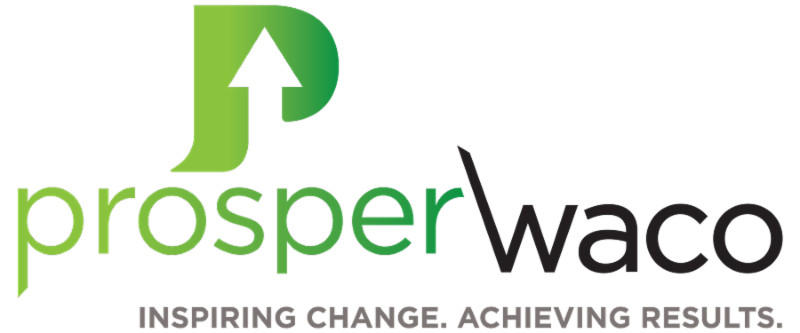 So what is Prosper Waco? Simply put, it’s a community-wide initiative to make Waco a better place for all of us to live. More specifically, our mission statement is “to build an environment in which all people can measurably improve their education, health, and financial security.” Education…health…financial security. They are intertwined in all our lives. Our educational achievement affects our job prospects, which affects our health, which affects our financial security…and so on.
So what is Prosper Waco? Simply put, it’s a community-wide initiative to make Waco a better place for all of us to live. More specifically, our mission statement is “to build an environment in which all people can measurably improve their education, health, and financial security.” Education…health…financial security. They are intertwined in all our lives. Our educational achievement affects our job prospects, which affects our health, which affects our financial security…and so on.
But how do you go about helping people improve their education, health, and financial security throughout an entire community? These are big, complex areas of life with lots of moving parts and many issues to consider. In order to make positive changes in these areas, a community has to agree on some goals that we can work toward together. This approach is called collective impact—a community working together to achieve goals that will benefit everyone.
If more children are academically and socially prepared to begin Kindergarten, our schools will be stronger. If more students (especially students from economically-disadvantaged backgrounds) complete a college certificate or degree, we will have a more dynamic workforce, which means our economy will grow, more jobs will be available, and more businesses will thrive. If more people in Waco have access to primary healthcare, our local hospitals will not need to provide millions of dollars a week (a week!) in uncompensated care and will be able to provide even better care for everyone. If more young people find a job, they will have a better chance of establishing a career that will provide their family with financial security and boost the local economy.
To achieve any of these things will take a coordinated effort from all of us.
So who is us? Who is Prosper Waco? You are…so are your family, your friends, your co-workers, classmates, and fellow church members. Prosper Waco is all of us pulling in the same direction to achieve some very big, very ambitious goals that will benefit everyone because more of us will be succeeding on an individual level. Prosper Waco is non-profits, businesses, churches, schools, and government agencies aligning their services and communicating about how they can work together to achieve common goals and better serve the community.
How can you be Prosper Waco? How can you get involved? Here are some ways:
- Talk to your neighbors and friends about Prosper Waco and what you’d like to see change for the better in our community. We are all the “grassroots” that will make this community-wide initiative work, and it will take people connecting with other people to make sure that Wacoans are able to make the most of the opportunities that develop out of this initiative.
- If you are a community member who has always wanted to be part of making Waco better but didn’t know where to start, call us and we can help you find volunteer opportunities with great local organizations.
- If you are a “big picture” person with a strategic mind, we’d love to have you join our steering committees to help develop community-wide strategies for achieving our goals.
- If you lead a local organization (non-profit, business, church, etc.) and want to coordinate your efforts with others to achieve common goals, give us a call or click on the Prosper Waco Affiliate logo at www.prosperwaco.org to indicate your organization’s interest in joining this movement.
If you’d like to learn more about Prosper Waco, give us a call at 741-0081, or visit us on the web, Facebook, or Twitter. #IamProsperWaco, and so are you. Together, we can build a Waco that works for all of us.
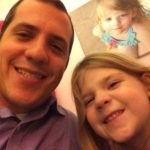 Matthew Polk is Executive Director of Prosper Waco. Prior to that, he served as Superintendent of Rapoport Academy Public School. He and his wife attended Baylor, and after spending a few years in the northeast, they returned to Waco to raise their family. They have four children, ages 8 to 3 months. You can contact him at [email protected].
Matthew Polk is Executive Director of Prosper Waco. Prior to that, he served as Superintendent of Rapoport Academy Public School. He and his wife attended Baylor, and after spending a few years in the northeast, they returned to Waco to raise their family. They have four children, ages 8 to 3 months. You can contact him at [email protected].
The Act Locally Waco blog publishes posts with a connection to these aspirations for Waco. If you are interested in writing for the Act Locally Waco Blog, please email [email protected] for more information.
by Crystal Melton
Four weeks ago I welcomed baby number four into my arms and into the world. I’m biased, but this little person that I’ve been given the privilege to raise is absolutely perfect. However, I realize that feeling is universal among parents. We gaze in awe at the unblemished miracle we’ve been given, and, with the best of intentions to maintain that perfection, we make lofty promises in an effort to keep that child as healthy and well as we can.
Promises like “I’ll never let the television babysit my child” or “I will never feed my child fast food.” And sometimes the promises aren’t about what we’ll never do, but what we’ll always do. “I’ll always take time to play hide-and-seek with my child” or “I’ll always find time to push my child on the swing.”
I’ve made those same promises. I don’t know about you, but life and the chaos that it brings seem to always get in the way. I’ll admit it: I’ve counted on cartoons to occupy my children on more than one occasion, and, yes, a trip through the drive thru has rescued us more than once. And, sadly, at times work expectations have come between me and that game of hide-and-seek with my child.
Parents, you’re not alone. We all have the best of intentions with our children, but sometimes we don’t quite accomplish what we set out to do. An occasional upset to those promises probably won’t derail their health, but a constant lifestyle of those choices definitely could begin to send your child down the path of poor health. Although we don’t need to beat ourselves up about it, we do need to open our eyes and see what’s happening to our kids and their health and begin to reapply ourselves to those goals we may have once set.
According to the Centers for Disease Control, in 2012 one in three adolescents was overweight or obese. The reality surrounding those numbers is sobering because what we are seeing with this increase in bodyweight is an increase in risk factors for heart disease in our youth, such as high cholesterol and high blood pressure. This increase in body mass also puts them at risk for prediabetes, bone and joint problems, sleep apnea and poor self-esteem. And all those risks are present right now during their youth- in the past, these problems didn’t occur until people aged! Today’s kids head into adulthood ahead of the curve when it comes to being at risk for heart disease, diabetes and some forms of cancer.
After you’ve digested that, let me reassure you that we can help our kids get their health back on track. It’s not too late to help lead your child to a life of health and well-being. Programs, such as MEND, can help you and your child learn to change behaviors and make healthier choices. MEND (Mind, Exercise, Nutrition, Do It!) is a free 10-week program that meets twice a week that helps children ages 7-13 who are above their healthy body weight learn about nutrition, physical activity, goal setting and more. Together, parent and child move through an engaging research-based curriculum that not only educates the family but also often reduces tension and stress at home surrounding food and activity. The lessons include fun, thought-provoking activities, like a supermarket tour where kids get to be MEND detectives, finding healthy food options on the shelves of the grocery store. Each meeting also includes a fun, progressive, noncompetitive, game-based physical activity session. Another one of the endearing things about this program is that you’re diving into this material and making these lifestyle changes with other families that are struggling to be healthy, too. There is support, accountability and shared ideas among parents and children.
Finding the help you and your child are looking for is no farther than the YMCA of Central Texas. The MEND program is offered several times throughout the year. Space is limited, though, so you’ll want to sign up soon. Remember: lots of parents just like you want a healthier future for their child. For more information call the DORIS MILLER FAMILY YMCA at 254 752 1605 or WACO FAMILY YMCA at 254 776 6612.
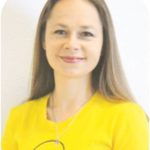 This Act Locally Waco blog post was written by Crystal Hernandez. Crystal is the Healthy Living Director for the Waco Family YMCA. She received her degree in Exercise Science and Health Promotion from the University of Memphis. She and husband Shawn are blessed to be the parents of 4 beautiful children. In her free time, she loves hitting the pavement and pounding out a good run.
This Act Locally Waco blog post was written by Crystal Hernandez. Crystal is the Healthy Living Director for the Waco Family YMCA. She received her degree in Exercise Science and Health Promotion from the University of Memphis. She and husband Shawn are blessed to be the parents of 4 beautiful children. In her free time, she loves hitting the pavement and pounding out a good run.
The Act Locally Waco blog publishes posts with a connection to these aspirations for Waco. If you are interested in writing for the Act Locally Waco Blog, please email [email protected] for more information.
by Sara Beth Stoltzfus
Being a parent can be tough. Returning to the role of parent as a 65 year old can be exhausting.
Now, I do not know this from personal experience. I am a 28 year old childless woman. I know this from what I have seen and heard from the grandmas and grandpas I have worked with through the Methodist Children’s Home (MCH) Family Outreach Grandparents as Parents Program (GAPP).
The Grandparents as Parents Program offers supportive in-home services to grandparents raising their grandchildren. The program includes case management, information and referrals for community resources, workshops, assistance with legal issues, and support groups.
Through this program, I have had the privilege of walking alongside young grandparents, older grandparents, grandparents with money, and grandparents with almost no income at all. Some grandparents come to our program seeking legal support, some because they are not making it financially, and some come because their grandchildren have been through so much physical and emotional trauma that they are constantly battling the problem behaviors that result. Some grandparents are just looking for someone to talk with, vent with, and cry with…someone to let them know that they are not alone.
All are coming to our doors because they love their grandchildren.
More and more grandparents are raising their grandchildren. In the United States, approximately 5.8 million children are living in grandparent homes. Similarly, almost 2 million children are living in the home of other relatives. (AARP, 2015). The AARP writes that grandparent caregivers and the children they are raising are frequently isolated. “They lack information about the range of support services, resources, programs, benefits, laws and policies available to help them successfully fulfill their caregiving role.” (AARP, 2015).
Grandparents serving as parents face a whole range of issues that the typical parent may not face. The U.S. Census found that grandparents living with a grandchild in 2012 were more likely to face poverty than those who did not live with a grandchild (Williams, 2012). A 2013 article in the Washington Post cited that 20% of grandparents raising grandchildren are living in poverty (Bahrampour, 2013). Grandparents are often not financially prepared for children to enter their home. This means they often have to take on a second, or even third job to pay for their grandchildren’s needs. Sometimes grandparents quit jobs that they once had in order to be able to adequately care for a child with special needs. While there is some financial help available for grandparents in specific situations, there is not enough financial assistance as many of these families need to feed growing children and themselves. Grandparents are also not getting any younger and often have health issues of their own to deal with. These financial and physical health challenges are highly prevalent amongst grandparents raising grandchildren. The need for greater support for these courageous grandparents is significant.
One of the greatest joys of working with the GAPP Program is facilitating a support group for these grandparents. I love watching one grandparent light up with deep understanding as another grandparent shares their story. I feel great satisfaction hearing a grandparent say they no longer feel so alone. Grandparents serving as parents are dealing with a lot of emotions. They shed tears regularly over their adult child’s drug addiction, another child’s domestic violence charges, the death of an adult child and the many other reasons their grandchild is staying with them. They wish for more for their adult children, but they work hard to set boundaries in order to keep their grandkids safe. Every story is different, but none is without complications.
Many grandparents feel very blessed to have a second chance to parent again. They know they’ve learned lessons over the years. They are often more patient the second time around. While the journey is not easy, most grandparents I’ve talked to feel very blessed by the entrance of their grandchildren into their lives.
We need to support our grandparents serving as parents. They are spending their golden years running around with toddlers, staying up into the night with a traumatized 8 year old, and learning to use a computer for the first time in order to relate to their teenage grandchild. All of the grandchildren that come to live with their grandparents have experienced some type of trauma. This is often trauma the grandparents are not prepared to address. Grandparents as parents need not only programs, such as GAPP and support groups, but a community of support. Grandparents as parents are indeed unsung heroes to our communities’ children.
One quote I often share with the grandparents I work with is:
“The more healthy relationships a child has, the more likely he will be to recover from trauma and thrive. Relationships are the agents of change and the most powerful therapy is human love.” –Bruce Perry
This quote also inspires and strengthens me in this work.
If you know a grandparent you would like to refer to our program or would like more information, please call 254-750-1263.
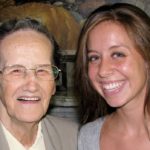 This Act Locally Waco blog post was written by Sara Beth Stoltzfus. Sara Beth is a case manager at the MCH Family Outreach office through the Methodist Children’s Home. Sara Beth received her master’s degree in Social Work from the University of Texas at Austin. Sara Beth is originally from Pennsylvania but has been living in Texas for almost 6 years, 4 of which have been spent in Waco.
This Act Locally Waco blog post was written by Sara Beth Stoltzfus. Sara Beth is a case manager at the MCH Family Outreach office through the Methodist Children’s Home. Sara Beth received her master’s degree in Social Work from the University of Texas at Austin. Sara Beth is originally from Pennsylvania but has been living in Texas for almost 6 years, 4 of which have been spent in Waco.
The Act Locally Waco blog publishes posts with a connection to these aspirations for Waco. If you are interested in writing for the Act Locally Waco Blog, please email [email protected] for more information.
By Ashley Bean Thornton
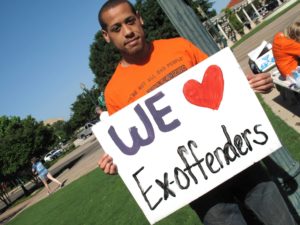 For several years now I have been a part of a conversation in Waco about how to help people returning to our community after incarceration to “reintegrate” into society. (Please visit the McLennan County Reintegration Roundtable website for more information about this on-going work.) One of the key elements for successful reintegration is employment. As you can imagine it is very difficult for an ex-offender to get a job interview much less a job. One idea that is being discussed to help formerly incarcerated individuals get work is “Fair Chance Hiring.” Fair Chance Hiring policies remove the questions about criminal history information from a job application. This change allows employers to judge applicants on their qualifications first, without the stigma of a criminal record. Questions about criminal history are moved later in the process. The idea is that if an employer has had a chance to examine the qualifications of the applicant, and possibly meet the applicant, that employer would be more likely to give the applicant a chance at a job. According to a flyer I received recently from Mission Waco representatives, 13 states have embraced this policy and around 70 cities and counties. On Saturday, April 25, 2015, several organizations in Waco including Mission Waco, Mission World and students from the Tarleton State University Social Work program worked together to hold a rally to advocate for Fair Chance Hiring. I was one of the speakers at the rally. Here are the thoughts I tried to share. Thank you for considering this important idea. – ABT
For several years now I have been a part of a conversation in Waco about how to help people returning to our community after incarceration to “reintegrate” into society. (Please visit the McLennan County Reintegration Roundtable website for more information about this on-going work.) One of the key elements for successful reintegration is employment. As you can imagine it is very difficult for an ex-offender to get a job interview much less a job. One idea that is being discussed to help formerly incarcerated individuals get work is “Fair Chance Hiring.” Fair Chance Hiring policies remove the questions about criminal history information from a job application. This change allows employers to judge applicants on their qualifications first, without the stigma of a criminal record. Questions about criminal history are moved later in the process. The idea is that if an employer has had a chance to examine the qualifications of the applicant, and possibly meet the applicant, that employer would be more likely to give the applicant a chance at a job. According to a flyer I received recently from Mission Waco representatives, 13 states have embraced this policy and around 70 cities and counties. On Saturday, April 25, 2015, several organizations in Waco including Mission Waco, Mission World and students from the Tarleton State University Social Work program worked together to hold a rally to advocate for Fair Chance Hiring. I was one of the speakers at the rally. Here are the thoughts I tried to share. Thank you for considering this important idea. – ABT
My written remarks for the Fair Chance Hiring Rally (They don’t exactly match what I ended up saying, but pretty close!) :
One of the most challenging things about living together in a community is balancing the needs and wants of various groups within the community while also keeping in mind what’s good for the whole community. When we find a tool that can help us do this, we need to consider it seriously. I think this fair chance hiring notion is just such a tool, and I support it. I want to speak for just a moment about how I came to that conclusion. I want to talk for just a little bit about how the practice of asking about criminal history a little later in the hiring process can balance the needs of formerly incarcerated job seekers with the needs of employers who are hiring – and how it can benefit our whole community.
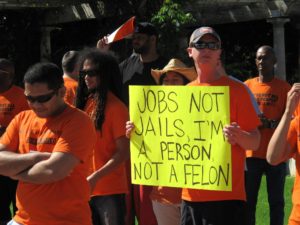 I’ll start with what I believe is good for the whole community. I believe it is good for the whole community for as many of us who can work, to be working. When more of us are working and earning a good income, it benefits the economy of our whole community – more people are buying things and making investments in their homes and more people are paying the taxes that pay for our community amenities. On the other hand, when some people cannot get work because of whatever barrier, whether it be lack of transportation or child care or education, or – as in the example we are grappling with today — a personal history that includes incarceration – it is bad for all of us. It hurts our economy and reduces the pool of resources available to our community. It does not do us any good as a community to have a whole group of people who find it difficult, if not almost impossible, to find work. When more people in our community are working, we are all better off. I believe moving questions about criminal history a little later in the hiring process will result in more people finding work, and I think that will be better for all of us.
I’ll start with what I believe is good for the whole community. I believe it is good for the whole community for as many of us who can work, to be working. When more of us are working and earning a good income, it benefits the economy of our whole community – more people are buying things and making investments in their homes and more people are paying the taxes that pay for our community amenities. On the other hand, when some people cannot get work because of whatever barrier, whether it be lack of transportation or child care or education, or – as in the example we are grappling with today — a personal history that includes incarceration – it is bad for all of us. It hurts our economy and reduces the pool of resources available to our community. It does not do us any good as a community to have a whole group of people who find it difficult, if not almost impossible, to find work. When more people in our community are working, we are all better off. I believe moving questions about criminal history a little later in the hiring process will result in more people finding work, and I think that will be better for all of us.
Next I would like to talk about the group of people who make up this population of formerly incarcerated individuals. Certainly no one doubts it is a benefit to them to be able to find work. We all need money to live. The best way to get money is to have a legal job. If that pathway is closed to you, then what options do you have? You can depend on your family – whose resources more often than not are already stretched to the breaking point. You can start your own business if you have the resources and personality to do that. Or, really, what else can you do? Add this financial reality to the psychological stress of being rejected for work at every turn, and you can see we have an environment that makes it very difficult for a person returning from incarceration to successfully reintegrate into our community. Moving questions about criminal history to a little later in the hiring process at least gives formerly incarcerated people a fighting chance to make their case, to put their best foot forward, to explain why what they CAN do is worth considering. It doesn’t give them a guarantee of a job – none of us have that – but it at least gives them a chance, a foot in the door, to finding a job that will allow them to contribute to our economy.
Finally, I would like to talk about this from the point of view of an employer. I have been an employer. I have had the job of trying to hire the best person for a job as quickly as possible. I know first-hand the expense and aggravation of making a bad hire. And I will admit that as an employer I first thought that getting rid of “the box” – the little check box on the application where a person indicates that they have made some mistakes in their past – was a bad idea.
My resistance was based on a desire for efficiency – when I am in hiring mode I don’t want to waste my time. I want to weed out bad candidates and focus only on good candidates. That little box seemed like an easy way to eliminate unsuitable job seekers. What I have learned is that, like with most things, the easy way is not always the best way.
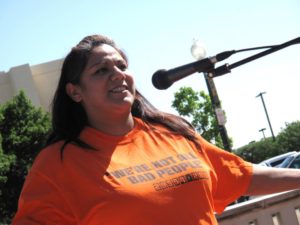 First of all, just because a person doesn’t check the box, that doesn’t mean they are going to be a stellar employee. There are plenty of people out there in the job market who have all kinds of problems that impinge on their ability to be good employees – drinking problems, drug problems, all kinds of problems – just because someone’s problems haven’t resulted in a conviction doesn’t mean they are a perfect angel. Just because a person doesn’t check the box doesn’t mean they have never done anything wrong. The absence or presence of a checkmark in that box doesn’t tell me this person will be a good employee and that person won’t. When it gets right down to it, hiring is somewhat a game of chance. That little checkmark really doesn’t give you as much useful information as it seems like it might at first glance.
First of all, just because a person doesn’t check the box, that doesn’t mean they are going to be a stellar employee. There are plenty of people out there in the job market who have all kinds of problems that impinge on their ability to be good employees – drinking problems, drug problems, all kinds of problems – just because someone’s problems haven’t resulted in a conviction doesn’t mean they are a perfect angel. Just because a person doesn’t check the box doesn’t mean they have never done anything wrong. The absence or presence of a checkmark in that box doesn’t tell me this person will be a good employee and that person won’t. When it gets right down to it, hiring is somewhat a game of chance. That little checkmark really doesn’t give you as much useful information as it seems like it might at first glance.
Second, I have learned through listening to employers who make it a practice to give formerly incarcerated individuals a chance that giving someone a chance can be a good step toward developing a loyal, hard-working, long term employee. Make no mistake – when I am hiring, it is not my goal to be a charity institution. It is my goal to get the best employee for the job. If I can get myself a good, loyal, hardworking, long term employee by giving a motivated person with good skills a chance, why wouldn’t I want to do that? That’s good for me and good for my organization.
I would not support a policy of not being able to ask about criminal back ground at all – certainly as a hirer I would want to know about past behavior. Some crimes will certainly disqualify some people from some jobs. But, if I weed people out because they checked a box before I ever met them, then I am missing out on some potentially good employees. If I talk to someone, find out about their skills, get a sense of their motivation and work ethic, and then find out about the mistakes of their past and what they learned from those mistakes – I can make an informed decision.
I have come to believe that fair chance hiring practices are potentially a benefit to employers as well. Yes, it may take more time in the hiring process – moving the question about past mistakes until later in the process, giving people a chance to make their case, takes more time than throwing away an application that has a check mark in the wrong place. But, finding a great employee is a beautiful thing. If time spent in the hiring process results in a great employee – regardless, or maybe even because of, the mistakes in their past – it saves time in the long run. We have employers in Waco who are reaping this benefit right now because they are willing to give people a chance. I believe it would be a benefit to the employers, to the formerly incarcerated individuals and to our whole community if more would do so.
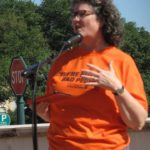 This Act Locally Waco blog post is by Ashley Bean Thornton, the Manager of the www.www.actlocallywaco.org website and the editor of the Friday Update newsletter. The Act Locally Waco blog publishes posts with a connection to these aspirations for Waco. If you are interested in writing for the Act Locally Waco Blog, please email [email protected] for more information.
This Act Locally Waco blog post is by Ashley Bean Thornton, the Manager of the www.www.actlocallywaco.org website and the editor of the Friday Update newsletter. The Act Locally Waco blog publishes posts with a connection to these aspirations for Waco. If you are interested in writing for the Act Locally Waco Blog, please email [email protected] for more information.
by Gary Lee Webb, DTM
Do you have trouble getting through a job interview? Are you uncomfortable speaking in front of people you do not know? Would you like to be better at responding to a surprise question? Or better at marshalling your thoughts and presenting your ideas? Perhaps you have a job, but wish to move up to a supervisory position? Or perhaps, you just wish to be a better speaker/presenter at church, work, or other organizations?
If any of these apply to you, Toastmasters International can help. Toastmasters is an international non-profit organization. We are 300,000 people helping people to learn how to communicate better, and we have been doing it for 90 years. Toastmasters offers participants a way to practice communication skills in a supportive environment, a way to meet more experienced speakers and see them in action, and a way to expand one’s horizons across the world. We are a self-paced program, with helpful, individual mentors, usually divided into chapters of roughly 20 people, generally meeting weekly or bi-weekly (see directions below on how to get info on local chapters). There is high level training available for those who want it,
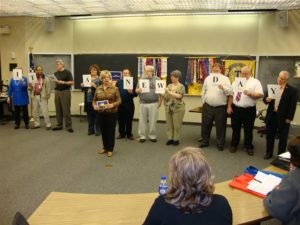 Toastmasters provides a very friendly environment in which beginners can learn, in front of a non-critical audience, that speaking is not hard. Participants go on to learn basic presentation skills, and, as they improve, gain the confidence that they are capable and even excellent speakers. They can either participate in a group (Speechcraft) or learn at their own pace (with a mentor); either way they will get positive criticism, aimed at helping them improve. As they practice, they will periodically see more experienced presenters (at club, contest, or conference), which may help guide their steps to being a better presenter. Eventually, participants discover that it does not matter whether the audience is friendly or not – they know they speak well.
Toastmasters provides a very friendly environment in which beginners can learn, in front of a non-critical audience, that speaking is not hard. Participants go on to learn basic presentation skills, and, as they improve, gain the confidence that they are capable and even excellent speakers. They can either participate in a group (Speechcraft) or learn at their own pace (with a mentor); either way they will get positive criticism, aimed at helping them improve. As they practice, they will periodically see more experienced presenters (at club, contest, or conference), which may help guide their steps to being a better presenter. Eventually, participants discover that it does not matter whether the audience is friendly or not – they know they speak well.
At the same time they are learning public speaking skills, participants are also learning how to handle those surprise questions, learning to marshal their thoughts, and how to respond well. This is a valuable skill particularly in an interview. Interviewers often resort to surprise questions, to see how the applicant responds. A sage response after brief thought could be the key to getting the job.
Toastmasters also develops leadership skills: listening, evaluating, organizing your thoughts, speaking in a way that you are believed, persuasive, or inspirational…in short, getting your message across and convincing people of its wisdom…these skills are a strong foundation for any leader. Participants also learn useful skills like organizing and running a meeting well, or putting together and managing a major project. I know people who used their new skills to get that supervisor position they wanted.
This is our mission statement: “We provide a supportive and positive learning experience in which members are empowered to develop communication and leadership skills, resulting in greater self-confidence and personal growth.” I believe we do it very well indeed: I have seen people become great speakers, authors, and leaders. It is a deep and wide program, with many options for learning and participation.
Members who wish to hold the highest honors demonstrate what they have learned by teaching others. As participants grow in the program they have opportunities to teach new speakers in Speechcraft, teach teenagers in Youth Leadership, teach management skills, and to teach leaders or trainers, as well as many other options. Not all of these are required, but I have done several to my benefit. I can proudly say I am a Distinguished ToastMaster (DTM), signifying I have delved deeply into the program, learning both communication and leadership.
What makes Toastmasters especially valuable is not just the practice, but the immediate feedback and the good role models. The manuals not only train the speaker, they guide the evaluator in what to look for, so that he may better tell the speaker how to improve. And after 90 years of improvement, the manuals are very good.
Moreover, the member will see better speakers to emulate. If the ones in his or her chapter are not good enough, there are other chapters to visit. Twice per year, there is a series of contests, in which members can compete against members from other chapters. The contest winners compete across larger regions, and then across the state. The international contest climaxes with the winner from each of the almost 100 districts world-wide competing in semi- and world finals. Last year (2014), I saw D.J. Swinyar win in the District 25 contest and get flown to Malaysia for the 2014 finals. Contests are optional, only about 10% of members compete, but those who are interested can learn, just by watching. There are also many other optional training opportunities.
In short, Toastmasters is a unique opportunity to improve oneself: as a speaker, as a leader, and in many other ways. The skills are valuable, and so are the friendships. We generally do our best to help each other out, and we tend to be willing to meet and network across the globe. I have become acquainted with astronauts, top businessmen, world champions, and great authors; I personally know toastmasters in three continents. The basic cost is $72 per year (prorated for a partial year); individual chapters may add local dues (there are seven chapters in the Waco area). And there is a $20 initial fee for a new member (pays for the initial manuals). That is incredibly cheap compared to other options for this kind of development. Toastmasters is a very cost-effective way to learn.
I hope you will consider coming and visiting one of our chapters – guests are always welcome. If you like what you see, if you think it will help you grow into a more capable person, I hope you will consider joining. For details of when and where we meet, you can e-mail me at [email protected] or check out the international web site, www.toastmasters.org, and put in your zip code after clicking “Find a Club” on the top bar.
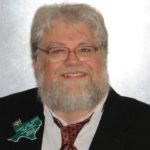 Gary Lee Webb is a 17-year resident of Waco. He recently completed a successful year as a president’s distinguished Division Governor for Toastmasters International, guiding 29 central Texas chapters. His credits include film chairman for the 1982 West Coast Science Fiction Convention, over 360 public speeches, assisting at both high school and adult speech contests, and over 40 publications (14 fiction). He is 59, married 38 years, with 4 daughters.
Gary Lee Webb is a 17-year resident of Waco. He recently completed a successful year as a president’s distinguished Division Governor for Toastmasters International, guiding 29 central Texas chapters. His credits include film chairman for the 1982 West Coast Science Fiction Convention, over 360 public speeches, assisting at both high school and adult speech contests, and over 40 publications (14 fiction). He is 59, married 38 years, with 4 daughters.
The Act Locally Waco blog publishes posts with a connection to these aspirations for Waco. If you are interested in writing for the Act Locally Waco Blog, please email [email protected] for more information.

